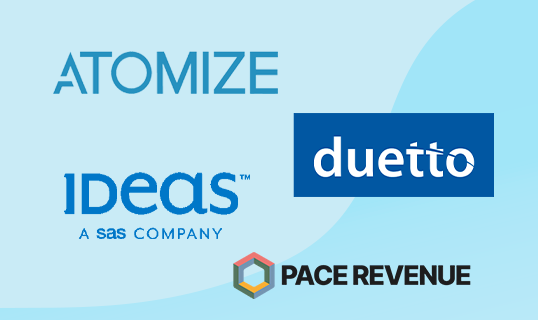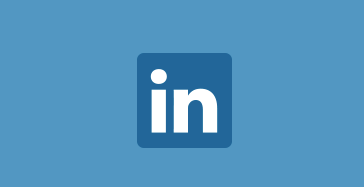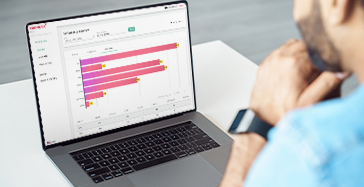Thought Leadership
The Case for Automated Revenue Management from 4 Top RMS Companies

Revenue management has become a critical function in the hospitality industry. Initiated by the airline industry and adopted by hoteliers, revenue management allows hotel to anticipate demand and optimize pricing in order to compete for market share and profits.
COVID-19 has underlined just how critical an RMS is. While historical precedence has been difficult to rely on, successful hotels are using new data sources and algorithms to price appropriately and optimize performance despite occupancy challenges.
In our latest ROOMDEX Webinar Series, we brought together 4 leading RMS companies in the industry to discuss the advantages revenue management can bring to hotels, price automation and future strategies. Panelists were:
- Cheryl Chavez, Chief Product Officer at Duetto
- Michael McCartan, Chief Growth Officer at Atomize
- Jens Munch, Sales Director and Co-Founder at Pace
- Klaus Kohlmayr, Chief Evangelist and Head of Strategy at IDEAS
The panelists were joined by Jos Schaap CEO and Co-Founder at ROOMDEX
Automation: Revenue Management is a science – not an art
Revenue Management has been around in hospitality since the early 1990s. Anyone working in the hotel industry could tell you that the job of the revenue manager is not unlike that of a stock trader. Revenue managers try to predict the demand trend, and just like stock trading, any insight or clue as to what the future will hold is critical in their ability to set the optimal price. For hoteliers, the task requires them to simultaneously juggle a wide range of systems and parameters within their daily tasks: reputation management, channel management, the best rates for each moment, revenue management, property management – even the results of reservation call centers. Unfortunately, there is no way a human could ever possibly evaluate all parameters comprehensively to achieve the maximum results. As such, many have started turning towards revenue management automation to tackle their revenue challenges.
Automation: Do more with less
On top of the normal data challenges, the past 12 months have added another layer of complexity to revenue management. First, operations have become leaner. As Cheryl Chavez from Duetto explained: “The need for automation is one of the biggest changes we’ve seen over the last year. We are seeing a lot of customers are now needing to do more with less and their ability to react to things that are happening in real time requires automation to be front and center as part of their revenue strategy”. She went on to say, “AI is our friend and not our foe and revenue management really needs to embrace it – need to understand that it can help them make decisions and be part of their optimal revenue strategy.” Michael McCartan of Atomize added, “We are experiencing a shift from descriptive revenue management to prescriptive revenue management which leverages technology and automation to capture even the smallest opportunities in the market while helping revenue managers to focus on their hotel’s vision and strategy.”
Automation: Price in real time
Booking patterns have changed dramatically in the last 12 months and business travel has almost evaporated for the moment. It will return but not before it has been replaced with an initial influx of leisure and transient travel. Booking pace has also changed. There is a shift in the way different segments of people are making booking decisions. Booking windows have become very small. Michael McCartan commented, “An RMS that considers both historical, current, and future data and has the intelligence to weight balance those data sources in the most optimized has the ability to deliver price recommendations you can trust. An RMS that doesn’t consider forward-looking data at all will require much more manual hand-laying of the Revenue Manager. In these times the RMS needs to put greater weight on the future demand data, future demand is always an important factor for revenue management but even more so now when the demand is completely off compared to what we are used to. By being able to detect this recovering demand – before it shows on the books – will enable hotels to be more proactive and stay ahead of the competition. We live in real time – things can happen in real time, so if you are not able to model and predict outcomes in real time then you are behind the curve. Have your finger on the pulse and adjust to changes appropriately.”
Automation: Be prepared for the upswing
While it might seem like we’re all climbing a very big mountain, there are key indicators that there is a potential for a hockey stick comeback. This is not the recession, but rather government-imposed travel restrictions. People have been saving – a lot. The US alone has accumulated $1.6 trillion in savings in the last 12 months. We know from looking at other markets that there has been a huge rebound in travel bookings once restrictions are lifted. With smaller booking windows and government regulations being lifted asynchronously, your system needs to be able to respond to sudden shifts in demand.
Automated data analysis is stronger than ever
Revenue management systems have evolved and have become more sophisticated over the past 30 years. Current day, there is much richer data from a variety of sources. Hotels have an opportunity to capitalize on revenue management automation. As Michael McCartan noted, “The big factor that has changed things over the last few decades is that there is a much richer source of data available now and the technology and data science is vastly improved. There is an opportunity for hotel to bring in technology, not only to save time but to detect revenue opportunities that they previously would have missed doing things manually or sub optimally.” He continued, “If you combine the amount and richness of the data available, the technology available and the unpredictability of the market, you can see it brings us to a point in history we’ve never been at before and it’s a real opportunity for hotels to capitalize and change the way they revenue manage their hotels.”
In conclusion
Revenue management is no longer just about traditional rooms-revenue but about hotel profit optimization. McCarton continued, “More hotels are starting to track TRevPAR (total revenue per available room) as well as RevPAR (revenue per available room). This shows that revenue managers are looking more closely at revenue generated in departments other than rooms. We see Revenue Managers moving away from the common role of managing systems and data to taking a more important position in commercial decision-making across departments.” With an automated RMS, hotels have the capacity to maximize revenue, inventory, and pricing all at the same time. Ultimately automation realizes optimal revenue decisions and increased profitability.
Covid has changed the hotel business immeasurably. Due to a combination of a completely changed marketplace and much leaner operations the case for scientific and automated revenue management is greater than ever. Now is a very good time to make sure you have the best technologies and best integrations to manage your opportunities when business bounces back.


